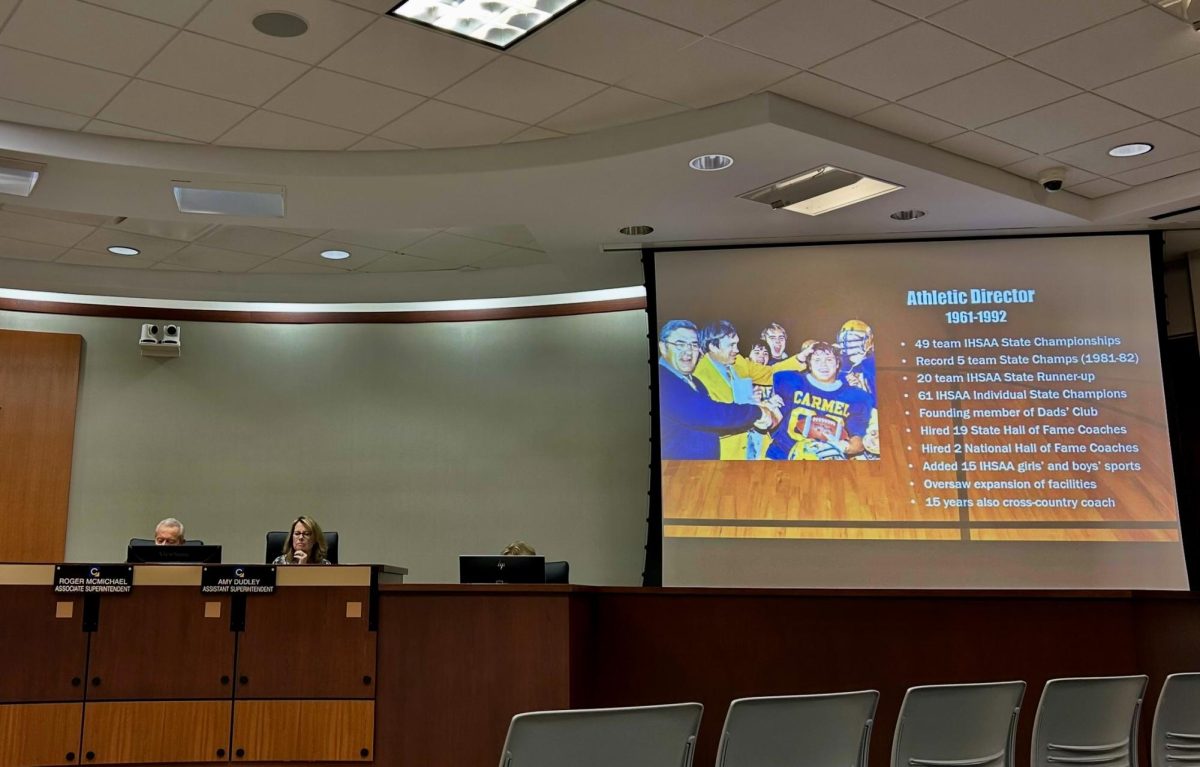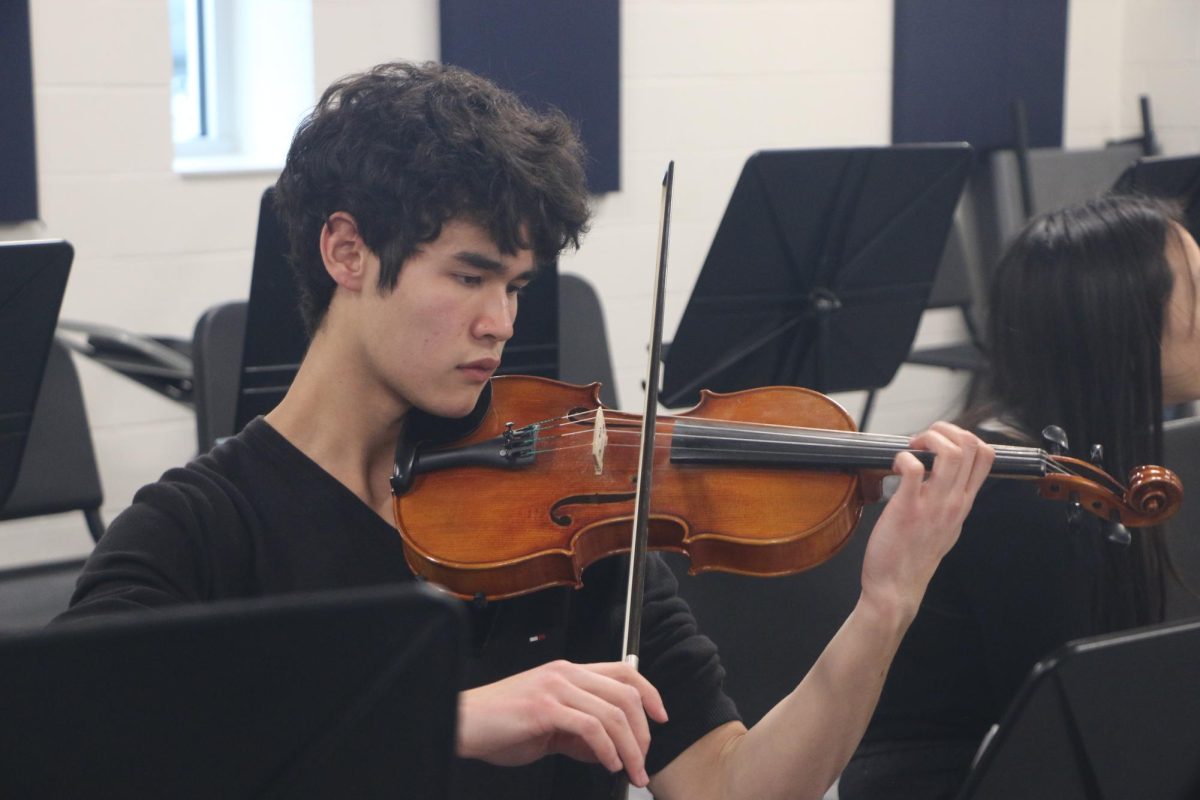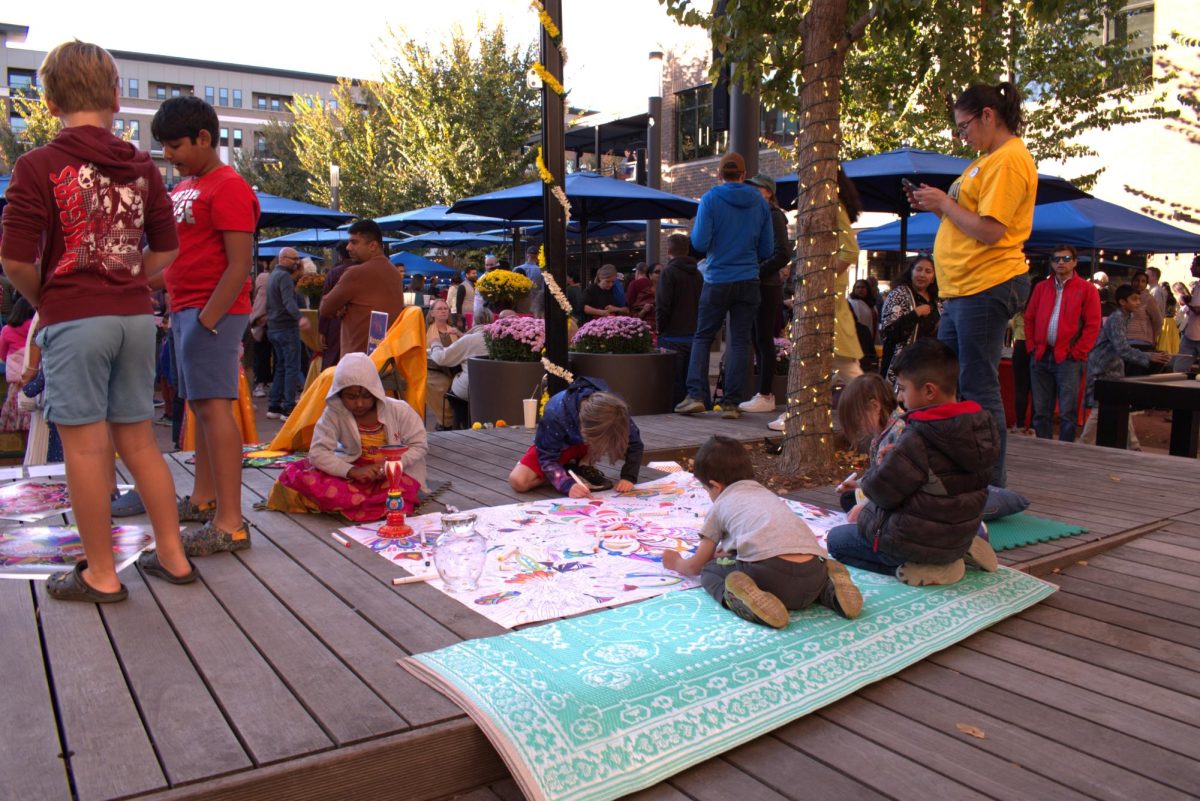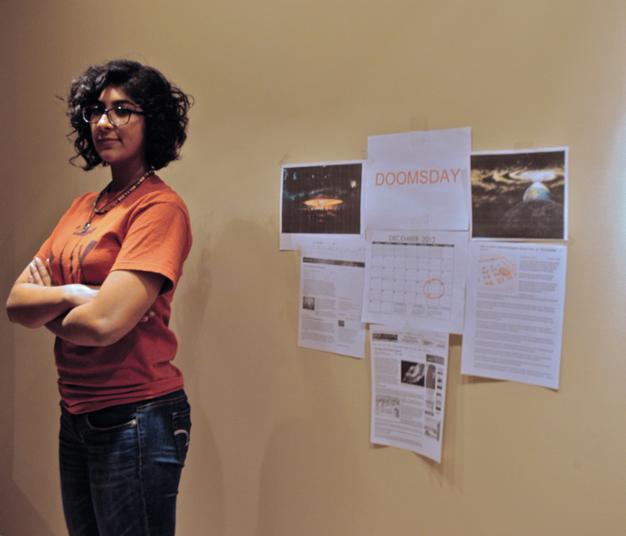About three years ago, freshman Mehar-Un-Nisa “Mehroo” Athar had an epiphany. Earlier that evening she and her friend went to see “2012,” a science fiction movie portraying the end of
the world. Not convinced by the movie’s plot, Athar ignored its unrealistic warnings. After watching the film, Athar was tempted to do some Internet research. What she discovered soon changed her mind about a potential apocalypse.
“It’s all there, all the research you need; mounds and heaps of evidence all point us in this direction (of the end of the world),” Athar said. “It is definitely not something you can ignore. With the reversal of the poles and the ending of the Mayan calendar, you can’t help but think that truly the world may end
on Dec. 21.”
Athar is not alone. According to a Reuters survey, by the Huffington Post, one out of 10 people believe that the world will end in 2012.

Nevertheless, there are still various approaches to the situation. There are people like Athar who believe in this upcoming doomsday but choose to wait out the incident. There are also people on the opposite end who decide to prepare for the supposed upcoming catastrophe.
“Personally, I think what’s going to happen will happen no matter what. The thing is, I don’t want to live in fear of (the apocalypse). Life is too short,” Athar said. “I know people think that there are ways to be better prepared, but I think I just want to face tomorrow when it comes. There is no point in wasting my today worrying about the impending tomorrow.”
On the other hand, for social studies teacher Matt Dillon, the apocalypse is about survival. In the aftermath of Hurricane Katrina, he said the importance of being prepared struck him hard as people were going weekswithout basic amenities.
“The effects of this catastrophe really cemented in my mind that in case there is some kind of calamity in which I need take care of myself and my family, I’m going to need fresh water, food and a way to defend my home,” Dillon said.
Dillon said that in case of an emergency, he has a survival kit ready in his house with food, water, documents and basic necessities.

“(The kit) is for a time when I have to get out of my house, and I have to get out now,” he said. “This is all I’m going to grab and just go.”
According to psychology teacher Peter O’Hara, having these kinds of slight fears regarding concepts like the end of the world is quite normal. Moreover, labeling these people as “paranoid” is a common misconception, as the word “paranoid” encompasses far more than being aware and prepared.
Popular culture has played a role in the spread of the Dec. 21 theory, and Dillon said he has a rather unsettling feeling about the near future.
“I mean, there is an entire video game, ‘Black Ops,’ about killing zombies, and I got this book around the same time that outlines how to survive a zombie apocalypse. So I kind of went on a slightly paranoid zombie kick,” Dillon said. “If you have any kind of paranoia, this will prey on you, and it kind of preyed on me.”
Dillon said the more he thought about it, the more he wondered how he would survive and protect his family from an apocalypse. He said all of his preparations are there to ensure safety and security no matter how chaotic and lawless the apocalyptic situation may become.
“If it can happen in Sandy, Katrina and other examples, who is to say it can’t happen on Dec. 21?” he said. “So what are you going to do? How are you going to survive?”




























![Keep the New Gloves: Fighter Safety Is Non-Negotiable [opinion]](https://hilite.org/wp-content/uploads/2024/12/ufcglovescolumncover-1200x471.png)






!["Wicked" poster controversy sparks a debate about the importance of accuracy versus artistic freedom [opinion]](https://hilite.org/wp-content/uploads/2024/11/riva-perspective-cover-1200x471.jpg)









































![Review: “We Live in Time” leaves you wanting more [MUSE]](https://hilite.org/wp-content/uploads/2024/12/IMG_6358.jpg)
![Review: The premise of "Culinary Class Wars" is refreshingly unique and deserving of more attention [MUSE]](https://hilite.org/wp-content/uploads/2024/12/MUSE-class-wars-cover-2.png)
![Introducing: "The Muses Who Stole Christmas," a collection of reviews for you to follow through winter [MUSE]](https://hilite.org/wp-content/uploads/2024/12/winter-muse-4.gif)
![Review: "Meet Me Next Christmas" is a cheesy and predictable watch, but it was worth every minute [MUSE]](https://hilite.org/wp-content/uploads/2024/11/AAAAQVfRG2gwEuLhXTGm3856HuX2MTNs31Ok7fGgIVCoZbyeugVs1F4DZs-DgP0XadTDrnXHlbQo4DerjRXand9H1JKPM06cENmLl2RsINud2DMqIHzpXFS2n4zOkL3dr5m5i0nIVb3Cu3ataT_W2zGeDAJNd_E-1200x884.jpg)
![Review: "Gilmore Girls", the perfect fall show [MUSE]](https://hilite.org/wp-content/uploads/2024/11/gilmore-girls.png)
![Review in Print: Maripaz Villar brings a delightfully unique style to the world of WEBTOON [MUSE]](https://hilite.org/wp-content/uploads/2023/12/maripazcover-1200x960.jpg)
![Review: “The Sword of Kaigen” is a masterpiece [MUSE]](https://hilite.org/wp-content/uploads/2023/11/Screenshot-2023-11-26-201051.png)
![Review: Gateron Oil Kings, great linear switches, okay price [MUSE]](https://hilite.org/wp-content/uploads/2023/11/Screenshot-2023-11-26-200553.png)
![Review: “A Haunting in Venice” is a significant improvement from other Agatha Christie adaptations [MUSE]](https://hilite.org/wp-content/uploads/2023/11/e7ee2938a6d422669771bce6d8088521.jpg)
![Review: A Thanksgiving story from elementary school, still just as interesting [MUSE]](https://hilite.org/wp-content/uploads/2023/11/Screenshot-2023-11-26-195514-987x1200.png)
![Review: "When I Fly Towards You", cute, uplifting youth drama [MUSE]](https://hilite.org/wp-content/uploads/2023/09/When-I-Fly-Towards-You-Chinese-drama.png)
![Postcards from Muse: Hawaii Travel Diary [MUSE]](https://hilite.org/wp-content/uploads/2023/09/My-project-1-1200x1200.jpg)
![Review: "Ladybug & Cat Noir: The Movie," departure from original show [MUSE]](https://hilite.org/wp-content/uploads/2023/09/Ladybug__Cat_Noir_-_The_Movie_poster.jpg)
![Review in Print: "Hidden Love" is the cute, uplifting drama everyone needs [MUSE]](https://hilite.org/wp-content/uploads/2023/09/hiddenlovecover-e1693597208225-1030x1200.png)
![Review in Print: "Heartstopper" is the heartwarming queer romance we all need [MUSE]](https://hilite.org/wp-content/uploads/2023/08/museheartstoppercover-1200x654.png)




